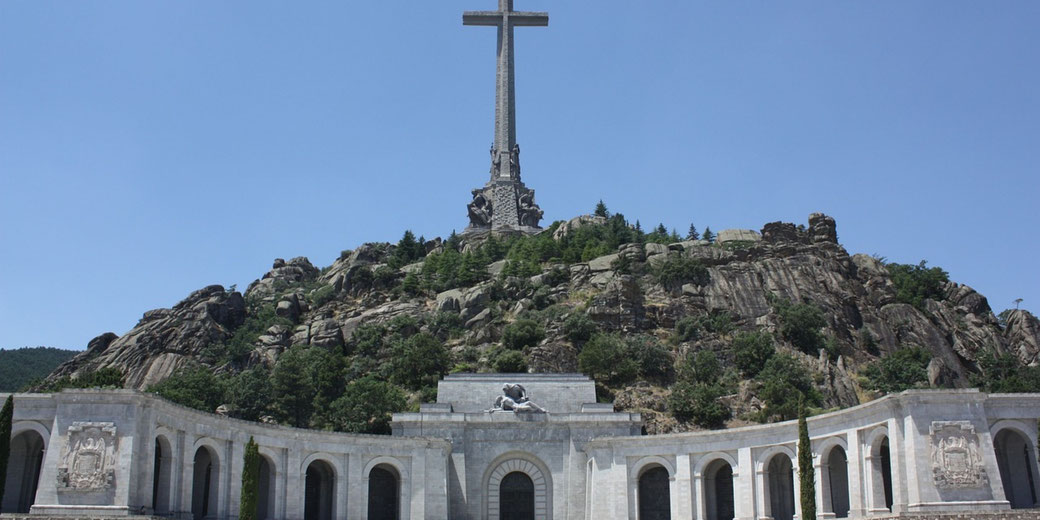The iron fist of Franco: The ruthless rise of Spain's dictator

As Europe grappled with the aftermath of World War I and the rise of totalitarian regimes, Spain found itself in the throes of a power struggle that would shape the nation's future for decades to come.
It was centre this turmoil that Francisco Franco, a driven military officer, who seized the opportunity to forge a brutal dictatorship.
However, what was the nature of Franco's ruthless ascent to power?
And why does his iron-fisted rule leave a devastating legacy that continues to cast a shadow over Spain today?
What was Franco's background?
Born in 1892 in Ferrol, a coastal town in northwestern Spain, Francisco Franco was the son of a naval officer.
According to later accounts, his early years were shaped by strict military discipline.
Then, Franco's career in the military began in 1907 when he entered the Infantry Academy in Toledo.
His tenacity and tactical acumen quickly earned him a reputation for ruthlessness, particularly during his time in the Spanish protectorate of Morocco.
His leadership during the Rif War (1920-1926) and the suppression of the Asturian miners' revolt in 1934 further solidified his status as a merciless military commander.
The Spanish Civil War
The Spanish Civil War (1936-1939) was a pivotal point in Franco's rise to power.
This conflict began with a military coup led by a group of right-wing generals, including Franco, who opposed the democratic Second Spanish Republic.
As the war raged on, Franco's Nationalist forces, supported by fascist Italy and Nazi Germany, employed brutal tactics to quash resistance from the Republican side.
Throughout the Spanish Civil War and in the following years, Franco's forces carried out mass executions of perceived enemies, including political dissidents, intellectuals, and members of labor unions.
It is estimated that around 150,000 to 200,000 people were executed during the war and its immediate aftermath.
By the war's end, Franco had emerged as the undisputed leader of the Nationalist faction and proceeded to establish a totalitarian regime.
Franco's Dictatorship
Once in power, Francisco Franco implemented a series of oppressive policies, which were designed to quell any opposition and maintain absolute control.
Under his regime, political dissidents were brutally persecuted, and thousands were imprisoned or executed.
In addition, Franco's regime established a vast network of labor camps and prisons.
This is where political prisoners were subjected to forced labor, torture, and inhumane living conditions.
Consequently, thousands of people died in these camps due to malnutrition and mistreatment.
Ultimately, Franco aimed to create a homogeneous Spanish identity. This led to the systematic suppression of regional cultures, languages, and traditions.
For example, languages such as Catalan, Basque, and Galician were forbidden in public spaces and education.
Similarly, expressions of regional pride were harshly punished.
Clearly, these policies were targeted at regional identities and cultures: suppressing any expressions of nationalism that diverged from his vision of Spain.
His economic policies, often favoring the wealthy and well-connected, further worsened social inequalities and contributed to widespread poverty.
Spain's Isolation under Franco
The brutality of Franco's regime did not go unnoticed by the international community.
During his reign, Spain was largely ostracized from global affairs due to its oppressive policies and human rights abuses.
It was only after World War II, with the onset of the Cold War, that Franco's anti-communist stance led to a gradual thawing of relations with Western powers.
Despite this shift, Spain remained diplomatically isolated until the latter years of Franco's rule, when the nation began to reintegrate into the international community.
Franco's impact on the present
Francisco Franco's died in 1975; but, his dictatorship left a lasting impact on the nation as it transitioned into a democratic system of governance.
However, the shadow of Franco's rule lingers, as the country grapples with the complex legacy of its authoritarian past.
The process of reckoning with the historical trauma and human rights abuses committed under Franco's regime has been difficult.
Efforts to bring closure and justice to the victims and their families continue to this day.
What do you need help with?
Download ready-to-use digital learning resources
Copyright © History Skills 2014-2025.
Contact via email
With the exception of links to external sites, some historical sources and extracts from specific publications, all content on this website is copyrighted by History Skills. This content may not be copied, republished or redistributed without written permission from the website creator. Please use the Contact page to obtain relevant permission.





